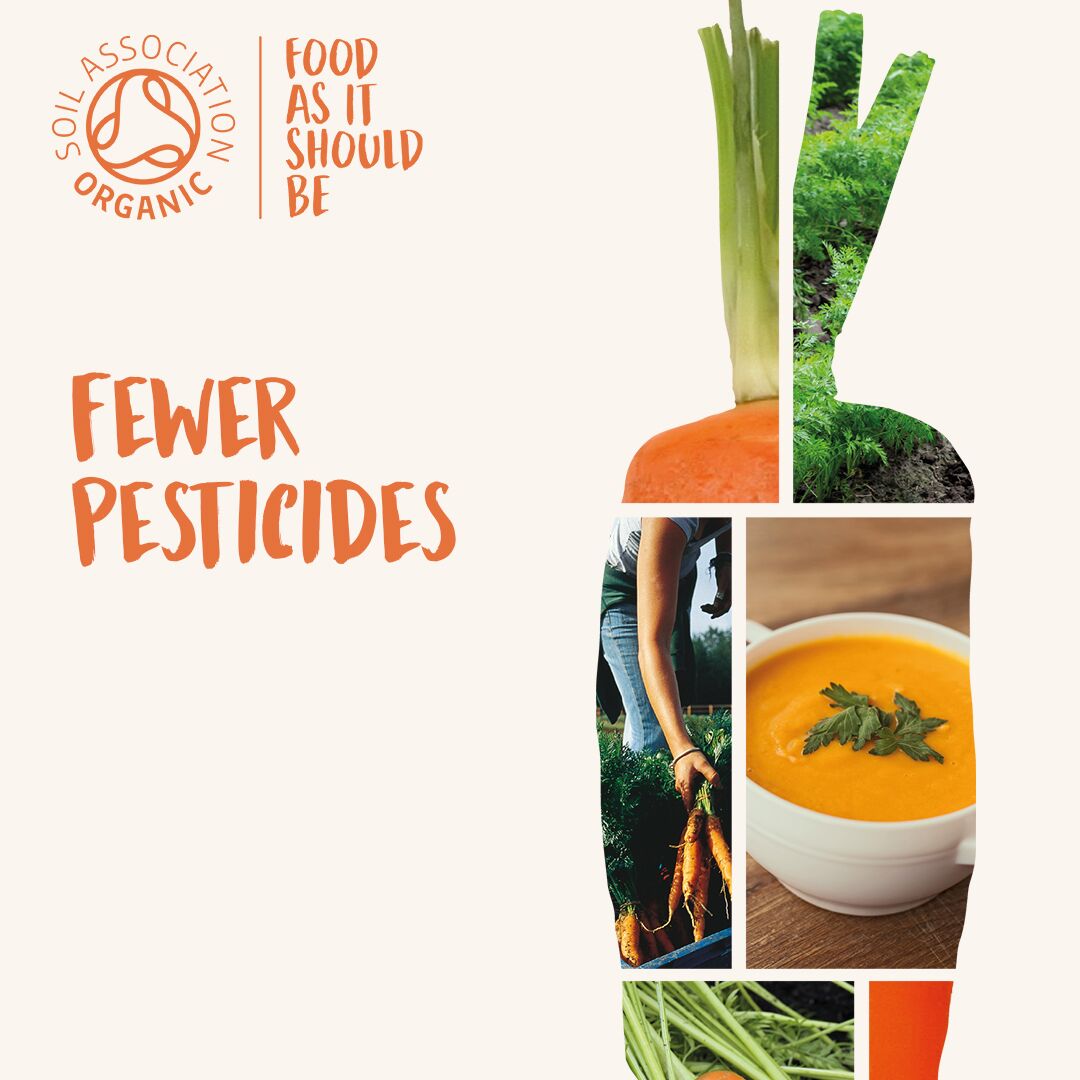
Reduce Your Exposure to Pesticides
Share
What's in your food?
Non-organic food production makes wide use of pesticides which can pollute water, the environment and make their way into our food chain. Government testing in 2017 found pesticide residues in 47% of British food, and many of these contain more than one pesticide. Between 2011 - 2015, 100% of oranges and 86% of pears tested contained multiple pesticide residue. The best way to reduce your exposure to pesticides in all food is to buy organic. Certified organic food, including all fruit and vegetables, processed food, dairy and meat products will overall contain fewer pesticides.
In 2016, over 16,600 tonnes of pesticides were used on British farms to kill weeds, insects and control crop diseases. Many pesticides don’t just kill the target pest. They can affect other wildlife and the environment by either direct poisoning, contaminating water courses or disrupting ecosystems.
Many people don’t realise almost 300 pesticides can be routinely used in non-organic farmingand these are often present in non-organic food eat despite washing and cooking. Organic farming standards, on the other hand, don't allow any synthetic pesticides and absolutely no herbicides such as Glyphosate.
Organic farmers are permitted to use just 20 pesticides, derived from natural ingredients including citronella and clove oil, but only under very restricted circumstances. Research suggests that if all UK farming was organic, pesticide use would drop by 98%! This means that organic farms are a haven for wildlife and these toxic pesticides can't make their way into the food chain and into us.
Organic farming reduces disruption to the natural environment. By rotating crops and selecting crop varieties with a natural resistance to particular pests and diseases, organic farmers are able to reduce or avoid disease problems and the need to control them with chemical inputs.
Not in our bread!
Glyphosate—the active ingredient in Monsanto’s Roundup—is the most widely sold weedkiller in the world. Government figures show its use in UK farming has increased by a shocking 400% in the last 20 years.
Glyphosate is one of three pesticides regularly found in routine testing of British bread, appearing in over 60% of wholemeal bread samples tested by the Defra committee on Pesticide Residues in Food.
Glyphosate’s manufacturers insist the levels in our food are safe. But a report by the World Health Organisation’s International Agency for Research on Cancer has concluded that glyphosate is a ‘probable carcinogen’. And research published since the IARC report suggests there is no safe level of glyphosate in food.
No herbicides (weed killers) such as Glyphosate are allowed in organic farming.
Glyphosate is one of three pesticides regularly found in routine testing of British bread, appearing in up to 30% of samples tested by the Defra committee on Pesticide Residues in Food.
Source: Soil Association.
